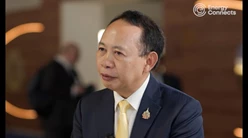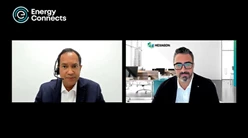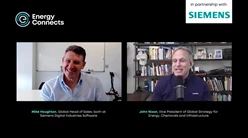Progress at scale: the journey towards a more resilient energy future
The global energy landscape is constantly evolving, introducing a new phase of complexity that reinforces a fundamental truth: energy security and decarbonisation are not opposing goals. The future demands an inclusive approach to energy utilization - one that drives affordability, security, and sustainability in equal measure.
As the world’s largest energy exhibition and conference, ADIPEC plays a pivotal role in bringing together global leaders, innovators, and policymakers to address these complexities and advance dialogue on building a more resilient energy future.
Today, climate challenges, geopolitical uncertainties, and supply chain disruptions are placing increasing pressure on the energy industry. Building resilient energy systems that can adapt to these disruptions while maintaining a reliable energy supply has become essential. This requires robust, flexible, and future-proof infrastructure that enables communities and economies to thrive. To meet the world’s growing energy demand, we must tap into all energy sources. Traditional sources, such as hydrocarbons, must continue to meet today’s needs while becoming cleaner and more efficient. At the same time, we must accelerate the development and integration of renewables and champion new and emerging energy frontiers.
The world’s demand for power is surging, driven by the rise of data centres, AI computing, and industrial digitalisation. In January 2024, the International Energy Agency (IEA) projected that electricity consumption from data centres, cryptocurrency, and artificial intelligence represented almost 2% of global demand in 2022 - and could double by 2026. While these innovations enable progress, they also require vast, reliable, and continuous energy supplies that are clean and efficient. Technologies that enable fuel flexibility, cogeneration, and electrification are vital to ensuring that the systems powering innovation remain resilient. Baker Hughes’ advanced gas turbines, for instance, can operate with hydrogen blend - bridging today’s energy needs with a lower-carbon future without compromising reliability.
Technology remains the cornerstone of progress towards resilient, decarbonised energy systems. Unlocking both existing and breakthrough technologies that enhance efficiency and accelerate decarbonisation is essential. We must focus on innovations that harness all sources of energy, leverage digital solutions to maximise data’s potential, and scale adoption of cleaner, more efficient industrial solutions across LNG, hydrogen, CCUS, geothermal, clean power, and mining.
Our digital tools and solutions, such as Cordant™ and Leucipa™, are helping customers drive automation, extend maintenance intervals, reduce downtime, and cut emissions - delivering both economic and environmental value while achieving lower carbon intensity in every molecule delivered.
Yet technology alone is not enough - policy must rise to meet the moment. Recent regulatory volatility has shown how uncertainty can derail critical investments in long- lead energy projects. The industry must advocate for stable, evidence-based policy frameworks that enable long-term infrastructure planning and rational investment. Effective policy should be technology-agnostic, performance based and designed to enable - not hinder - innovation. It must reduce barriers to permitting and deployment of new solutions, ensuring that progress moves at the pace the world demands.
Collaboration and partnership remain the essential pillars of progress. Now more than ever, we must expand how we build and leverage partnerships to influence policy, accelerate regulation, and transform commercial practices. These partnerships must extend across industries, governments, NGOs, financial institutions, academia, and technology providers.
Operating across more than 120 countries, Baker Hughes leverages deep local insight - understanding unique market requirements, customer needs, and regulatory contexts - to deliver tangible local impact. This includes developing region-specific solutions, investing in local talent, and ensuring innovation is scalable and inclusive.
ADIPEC represents a defining moment for the global energy community to convene and shape the energy future the world needs. The next decade will be defined by how we balance energy security with climate ambition to build a more resilient energy future. As we look ahead, three words capture Baker Hughes’ outlook: Secure. Sustainable. Scalable.
Energy Connects includes information by a variety of sources, such as contributing experts, external journalists and comments from attendees of our events, which may contain personal opinion of others. All opinions expressed are solely the views of the author(s) and do not necessarily reflect the opinions of Energy Connects, dmg events, its parent company DMGT or any affiliates of the same.






